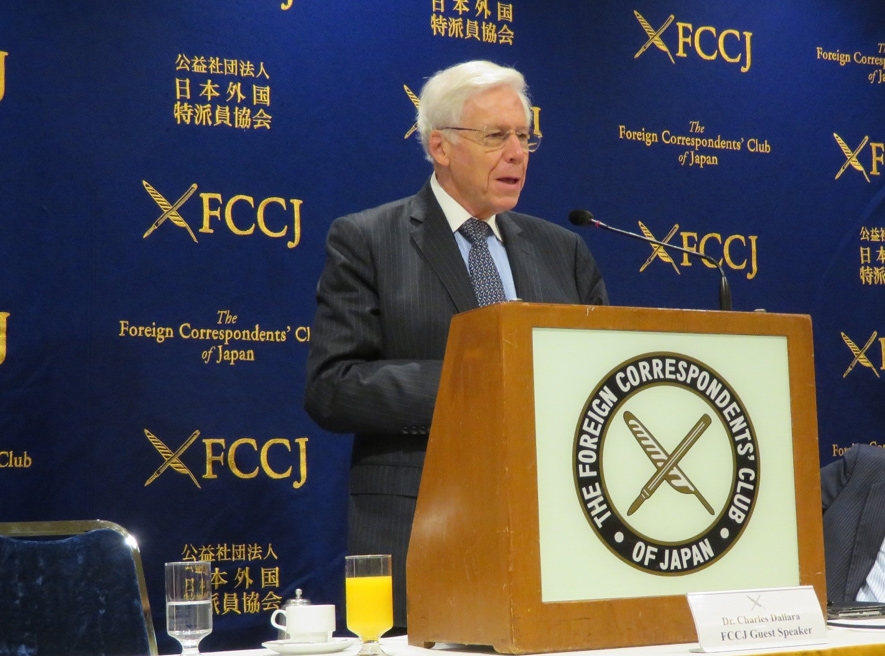Talk by Dr. Charles Dallara at the FCCJ – Parallels and Contrasts in US Relations with 1980s Japan and 2010s China, and the Risks that Lay Ahead

Today’s trade tensions between the US and China bear similarities to the sometimes contentious talks between Washington and Tokyo 30 years before, but can also find a workable solution, noted trade expert Charles Dallara said in a recent seminar in Tokyo.
But Dallara, former head of the Institute of International Finance, also warned that the rise of populism in many nations poses a broader threat to the international trade regime.
Speaking at the Foreign Correspondent's Club of Japan, Dallara recalled the US-Japan trade talks of the 1980s and 90s, comparing them with the current situation between the US and China.
Having been a member of the US negotiating team during the frequent (and occasionally tense) trade negotiations with Japan, Dallara said that “my recent visit to Beijing does bring back some sense of déjà vu” at the ongoing trade discussions between the US and China today. Despite significant differences between the two situations, he stated his belief that similar cooperative results can be achieved with China.
The danger, Dallara warned, is the rise of populism, which could lead to countries choosing protectionism over international cooperation. "Today we have populism growing like kudzu,” he said, likening the political movement’s spread through the US, Europe and Latin America to the creeping vine engulfing wide swaths of the US.
“It is infectious. And it creates a world of false illusions. Of notions that we have outgrown the postwar institutions, that we must each fight for our own place in the world because there is no win-win cooperative framework. It creates the illusion that nationalism is patriotism. It creates the illusion that protecting my industries will help my people," he said.
